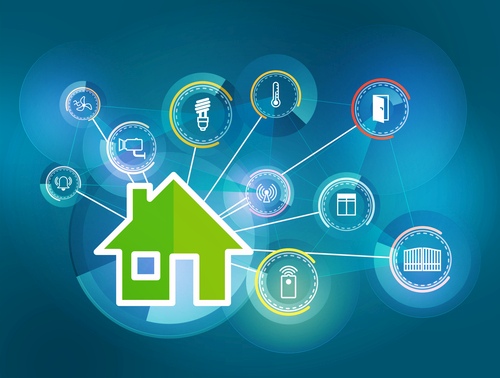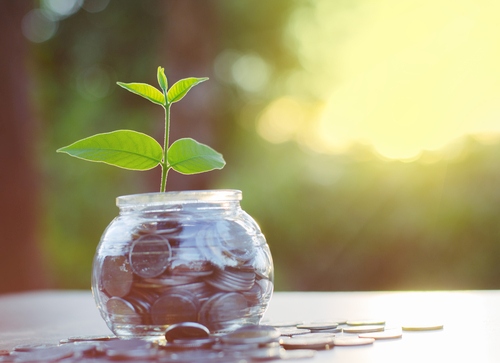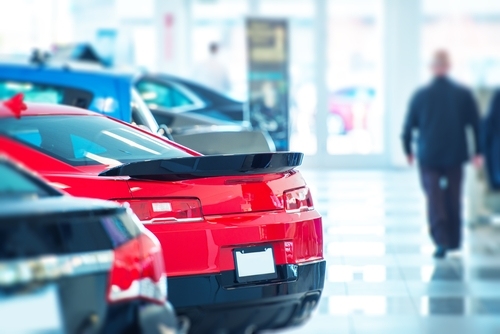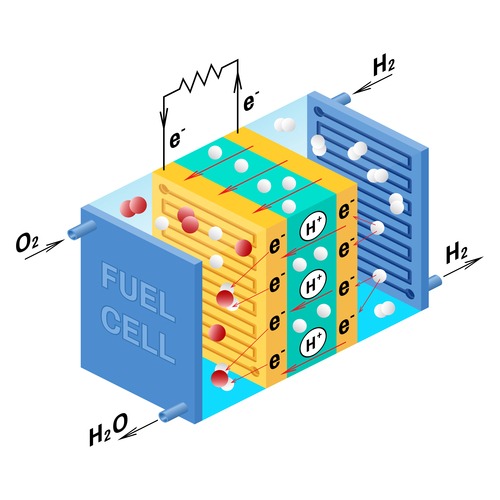Samsung C&T unveils next-generation artificial intelligence in its smart home
Samsung’s construction business unit, Samsung C&T, plans to introduce next-generation smart home technology based on artificial intelligence (AI). The company plans to launch this technology next year at the earliest. On Feb. 15, Samsung opened the Raemian Artificial Intelligence (RAI) Life Hall, an upgrade of the previous Raemian Home Lab-Smart Life Hall. The venue showcases AI technology for a more convenient everyday life. The newly opened demonstration building includes services that use future technologies such as AI, robots and drones. Dedicated spaces such as a home office and fitness area have also been set up. Samsung C&T expects these technologies to be ready for the market within 2021, when the trial process is completed.

The building is essentially divided into public and confidential areas. The public area consists of a smart parking lot and some rooms of an apartment. Samsung C&T has installed a parking guidance system that directs residents to a free parking space near their apartment as well as sends a robot to the parked car, which helps one carry groceries. The cars are recognized by cameras and license plate recognition systems. At the entrance to the apartment is a camera for facial recognition as well as a thermal imaging function. Other surveillance cameras film the growth of plants in the shared smart farm and transmit them directly to each apartment.
In the public area, robots guide visitors to the individual rooms, while in the in-house café, robots prepare drinks and serve guests. In a show apartment, Samsung applies the new AI to existing smart home functions. The artificial intelligence detects and learns the habits of the residents and automatically controls the corresponding functions in the home. Controls by the AI include lighting, temperature and entertainment, which are switched according to patterns for eating, relaxing and sleeping. In light of the Covid 19 pandemic and an increase in time spent at home, Samsung C&T has also integrated a home office/homeschooling area into the home. In addition, a multi-function room for hobbies, fitness and home theater has been added.
To import or sell electronic equipment in South Korea, this is subject to KC certification (also called KC-Mark). The KC-Mark or KC certificate is roughly equivalent to the European CE mark and applies to 730 different products. KC certification, or Korea Certification, is primarily about identifying and containing a potential risk to consumer health and safety. We will be pleased to provide you with non-binding advice regarding Korea Certification and would be delighted to carry it out for you.
If you need assistance or have any questions regarding Korean certifications like KC, KC EMC, KCs or KCs for explosion safety products, feel free to contact us any time.
Tel.: +49-69-2713769259
Email: info@korea-certification.com
Urgent questions?
Please do not hesitate to contact us via chat. You will find the chat window at the bottom right of each page (if this is not visible, please check your browser settings).
For more information you can download our free brochure “Korea Certification Made Easy – The Booklet“.
Korea’s government expands support for foreign companies
The government announced an expansion of support for foreign companies based or doing business in South Korea in early February. In light of the pandemic, the country is encouraging investment, particularly for digital and “green” industries in line with a major investment project, the “New Deal” initiative. Trade Minister Yoo Myung-hee said at a meeting with the Korea Foreign Company Association (FORCA) that despite the challenges posed by Covid-19, foreign investors have increased their involvement in semiconductors and chips, biotechnology, and green vehicles and batteries. The minister pointed out that in 2020, foreign firms accounted for 5.6 percent of the workforce as well as 18.6 percent of imports.

Overall, foreign direct investment (FDI) in Korea in 2020 declined 11 percent year-on-year due to the coronavirus pandemic and global recession. As the fourth largest economy in Asia, South Korea received $20.7 billion in foreign investment last year, down from $23.3 billion in 2019. Still, this is the sixth consecutive year Korea has secured more than $20 billion in investment. Later this year, the South Korean government will offer more opportunities for business activities by foreign companies in line with the “New Deal” initiative. The “New Deal” initiative, unveiled last year, consists of four pillars: Promoting digital and “green” businesses; strengthening job security and social benefits; and balanced regional development. The government will announce further details for foreign direct investment (FDI) promotion in March.
South Korea is considered one of the most important and innovative industrialized nations in the world. To gain market access to this highly technological country, products imported into South Korea must be tested and certified.
If you need assistance or have any questions regarding Korean certifications like KC, KC EMC, KCs or KCs for explosion safety products, feel free to contact us any time.
Tel.: +49-69-2713769259
Email: info@korea-certification.com
Urgent questions?
Please do not hesitate to contact us via chat. You will find the chat window at the bottom right of each page (if this is not visible, please check your browser settings).
For more information you can download our free brochure “Korea Certification Made Easy – The Booklet“.
South Korean Car Market Strong During Last Year
Despite falling numbers in global automobile sales, which declined by 14 percent last year, the South Korean market proved to remain strong with a growing number of new registrations.

Registrations have increased by 6.2 percent to 1,905,972, exceeding the historical landmark of 1.9 million. This makes the South Korean market the only global top 10 market with increases in domestic sales, managing to rise from 12th to ninth spot regarding market size.
The market share of imported cars has increased from 15.3 percent to 15.9 percent regarding sales volume, and up to 28 percent regarding sales value, with the number of imported cars exceeding 300,000. Standard vehicle selling prise has increased from 32.9 million won to 35.9 million won.
in 2020, the market share of electric and hyrid vehicle sales broke the 10 percent mark for the first time ever, with the hybrid car sales volume exceeding 173,000 and the electric vehicle sales volume reaching 5,841.
Many automotive and other products might fall under one of Korea’s various certification schemes.
If you need assistance or have any questions regarding Korean certifications like KC, KC EMC, KCs or KCs for explosion safety products, feel free to contact us any time.
Tel.: +49-69-2713769259
Email: info@korea-certification.com
Urgent questions?
Please do not hesitate to contact us via chat. You will find the chat window at the bottom right of each page (if this is not visible, please check your browser settings).
For more information you can download our free brochure “Korea Certification Made Easy – The Booklet“.
SK E&C begins production of environmentally friendly fuel cells
The new production facility, named Bloom SK Fuel Cell Plant, is a joint venture between SK E&C and U.S.-based Bloom Energy, a global manufacturer of fuel cells. The joint venture was established in January last year to produce so-called SOFCs (solid oxide fuel cells) in South Korea. SK E&C owns 49 percent of the company, while Bloom Energy owns the remaining 51 percent. The two companies began trial production of SOFCs in July. They plan to expand production capacity from 50 MW in 2021 to 400 MW in 2027. The first fuel cells will be delivered to a power plant, which is scheduled to begin operations in January 2021. The power plant will then have the world’s most powerful fuel cells.

At the opening ceremony, SK E&C announced two other major achievements of projects using SOFCs. The first was winning an engineering, procurement and execution project at Equinix, one of the leading data center operators in the United States. It involves the construction of a 6.4 MW SOFC plant at an Equinix data center in San Jose, California. Groundbreaking is scheduled for April 2021, with commissioning eight months after completion of construction. The second advance is the signing of a memorandum of understanding between SK E&C, Bloom Energy and SK Advanced for a pilot project to apply hydrogen as a waste product from the chemical industry and use it to power fuel cells. SK Advanced’s PDH plant in Ulsan, South Korea, where the company produces propylene and other gases, was selected as the site. To that end, the companies are building an SOFC pilot plant that is scheduled to begin operations in April 2021 and will study commercial applications of the process over the course of a year.
Solid oxide fuel cells (SOFCs) are the world’s most effective power generation for distributed applications. The fuel cell uses liquefied natural gas and generates electricity during a reaction of hydrogen and oxygen. The process far outperforms conventional fuel cells and generates environmentally friendly electricity without fine dust emissions and on a very small footprint. Numerous SOFCs are already in operation in the U.S., including at Walmart and Home Depot stores and the Morgan Stanley and Softbank buildings in New York.
If you need assistance or have any questions regarding Korean certifications like KC, KC EMC, KCs or KCs for explosion safety products, feel free to contact us any time.
Tel.: +49-69-2713769259
Email: info@korea-certification.com
Urgent questions?
Please do not hesitate to contact us via chat. You will find the chat window at the bottom right of each page (if this is not visible, please check your browser settings).
For more information you can download our free brochure “Korea Certification Made Easy – The Booklet“.



